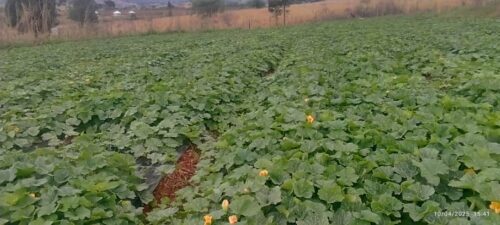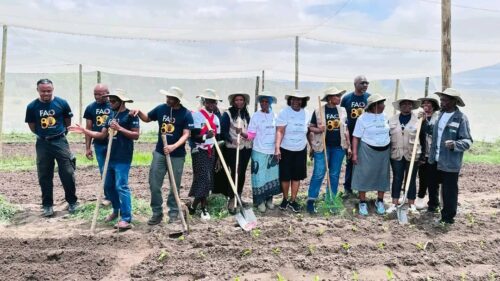BY PHESHEYA KUNENE – EDITOR
MANZINI – A rich aroma of opportunity is brewing across Africa’s coffee belt, and Eswatini is right in the mix. Eswatini Coffee has officially spread its wings into Kenya, a courageous leap that promises to transform the Kingdom’s agricultural landscape and unlock new regional markets.
Through the strategic facilitation of the Eswatini Investment Promotion Authority (EIPA), the homegrown coffee brand has partnered with Sumseron Coffee and Café AMKA of Kenya, two well-established enterprises renowned for their mastery in African coffee culture. The partnership is more than a trade agreement; it is a continental handshake grounded in vision, ambition, and the belief that African products can conquer African markets before conquering the world.
The collaboration was born from EIPA’s participation in the 18th COMESA Business Forum and Exhibition, where local entrepreneurs engaged regional industry giants in pursuit of growth and innovation. For Eswatini Coffee, this partnership comes as sweet validation after being crowned Best Emerging Exporter at the Eswatini National Export Excellence Awards 2025, a testament to its dedication to quality and creativity.
From Bean to Business – Brewing Economic Potential
The heart of this partnership came alive during an exclusive coffee brewing and tasting session in Nairobi, where EIPA officials experienced the distinctive aroma and taste of Eswatini Coffee, paired with Kenya’s own celebrated blends. The moment was symbolic, a fusion of heritage, expertise, and African enterprise, proving that collaboration is the new caffeine for trade growth.
EIPA’s Manager of Export Trade, Thandeka Dlamini, described the initiative as a breakthrough in regional integration.
“By connecting Eswatini Coffee with established players in Kenya’s world-renowned coffee industry, we’re opening new export opportunities for local businesses, empowering them to scale up and compete in regional value chains,” she said.
Her words echo a larger national aspiration, to turn coffee from a niche crop into an economic engine capable of driving youth employment, entrepreneurship, and export diversification.
Government’s Vision: From Jimma to Mbuluzi
Prime Minister Russell Mmiso Dlamini’s visit to Ethiopia’s Jimma District, the birthplace of coffee, underscored Eswatini’s ambition to replicate Africa’s best agricultural models. Joined by Minister of Labour and Social Security Phila Buthelezi, the Prime Minister explored how Ethiopia’s thriving coffee economy sustains livelihoods, creates jobs, and protects the environment through agroforestry.
“Jimma is the cradle of coffee,” he remarked. “We witnessed how coffee production sustains entire communities and provides income for the youth while protecting the environment. That’s the kind of sustainable model we envision for Eswatini.”
These insights now anchor government efforts to position coffee as a strategic crop, one that can thrive in Eswatini’s fertile valleys and mountain slopes while stimulating rural enterprise.
Kenya Connection: Turning Vision into Reality
The Kenya partnership gives Eswatini Coffee a springboard into East Africa’s dynamic markets. With Kenya being one of the continent’s leading coffee producers, this collaboration provides access to technical know-how, marketing expertise, and international quality standards. Analysts note that this kind of knowledge transfer is essential if Eswatini is to build a competitive, export-driven coffee industry.
As Dlamini pointed out, “EIPA’s facilitation was only the first step. The real sustainability of this partnership depends on how well our coffee entrepreneurs can innovate, maintain quality, and build relationships. This is how intra-African trade becomes a living reality.”
Brewing Beyond Borders: Eswatini in the Global Arena
Eswatini’s momentum in agribusiness is not limited to East Africa. Earlier this year, EIPA, NAMBOARD, and Eswatini Coffee represented the Kingdom at the 14th Nordic-African Business Summit in Oslo, Norway, a major European platform for trade and investment in Africa.
Supported by the European Union (EU) and the International Trade Centre (ITC), the mission aimed to help Eswatini exporters benchmark against international standards, study packaging and branding, and explore market entry strategies.
Eva-Maria Engdahl, Head of Cooperation at the EU Delegation to Eswatini, lauded the initiative.
“Our goal is to empower Eswatini’s micro, small and medium enterprises to compete globally by building connections, strengthening value chains, and opening doors to new markets,” she said.
A Taste of Tomorrow
The success of Eswatini Coffee is no coincidence, it’s the fruit of persistence, vision, and strategic partnerships. From Norway to Nairobi, Eswatini is slowly crafting a new identity in agribusiness, one built on innovation, collaboration, and quality.
The coffee beans grown on Eswatini’s soils now carry the promise of economic renewal. Each cup tells a story of resilience, entrepreneurship, and national pride.
And as Eswatini Coffee brews its way into the hearts of new markets, it reminds the continent that Africa’s future doesn’t just lie in its minerals or machinery, it lies in the hands of its farmers, and in the flavour of its soil.






